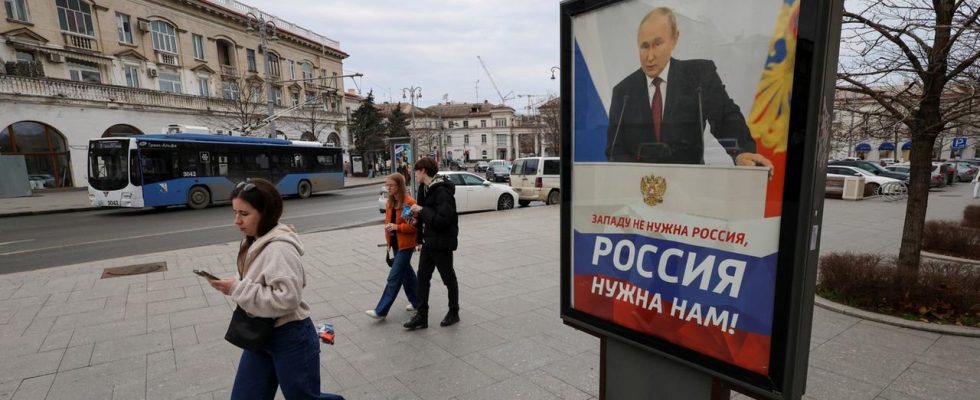The annexation of Crimea ten years ago, which violated international law, also massively changed the lives of the Crimean Tatars. Since then, many have left their homes, been dispossessed or put in prison. Today they see their culture threatened.
“We are the big losers from the annexation of Crimea, and since the start of the war in 2022 our situation has become even worse,” explains Azeez Umerov at the screening of a recently released documentary about ten years of occupation in Crimea. Many Crimean Tatars gathered this evening in the Ukrainian capital Kiev to exchange memories of their homeland.
Umerow wants to tell about his sister. The young woman has been imprisoned in Russia for a year. “She was never politically active. She just wanted to visit our father, who had cancer,” he reports.
A nightmare begins
A year ago, the then 24-year-old student Leniye Umerova was on the bus in Crimea on the way to her family in the central city of Simferopol, as she had done so many times before, when she was taken into custody by Russian soldiers. She was the only one on the bus who had a Ukrainian passport. As a 16-year-old, she decided against a Russian passport that was issued after the annexation on the peninsula, which violated international law.
She is now in the notorious Lefortovo remand prison in Moscow. She is accused of espionage and treason. The only contact with the outside world is letters. “They are being censored,” says Umerow. “Anything that the authorities don’t like is obscured.”
Vacation resort and military headquarters
Crimea is of great strategic importance for Russia as an ice-free location for its Black Sea Fleet. And the Crimean Tatars were already under general suspicion in the Soviet Union. Stalin accused them of collaborating with the Nazis and had them deported to Central Asia in 1944. They were only allowed to return to their ancestral homeland in 1988.
Today they are being dispossessed and imprisoned again, and many are serving long prison sentences. Since the invasion began in February 2022, half of the approximately 500,000 Crimean Tartars have left the peninsula. Their culture is threatened.
The traces of the occupation
“The Russians are trying to erase the identity of the Crimean Tatars,” explains Tamila Tasheva. Since 2019, she has represented the interests of the Crimean Tatars in the Ukrainian government. “Ten years of occupation have left deep marks,” she says. Mosques, monuments and historical Buildings were destroyed. “Our children no longer have the opportunity to learn our language in Crimea. That was banned.”
Tasheva advocates for political prisoners like Bogdan Ziza, who was sentenced to ten years in prison after daubing the administrative building in the city of Yevpatoriya with blue and yellow paint, the national colors of Ukraine.
She wants to hold Russia accountable for the crimes against the Crimean Tatars. With a team of more than 40 employees, Tashewa collects evidence to one day present it to the International Criminal Court. She is supported by Crimean Tatars from all over the world.
“They follow the rules of the Soviet Union”
The length of prison sentences for political prisoners and the conditions in the prison camps are worse than in Soviet times, explains Tasheva. “It is the courts of the Russian Federation that make the judgments, but they still follow the rules of the Soviet Union.” And the prison camps are like that Gulags and thus a structure that survived the Soviet Union.
The situation is becoming increasingly difficult, explains Emil Kurbedinov, one of the few Crimean Tatar lawyers still remaining in Crimea. His family was deported by Stalin in 1944. He himself returned to Crimea as a young man.
It is dangerous for him to speak to Western journalists alone, but his desire for justice is greater than his fear, he explains. Others are trying to resist from the Ukrainian heartland or from abroad.
Azeez Umerov, whose sister is in Russian custody, believes that Russia wants to intimidate the Crimean Tatars “so that we submit to the propaganda that Crimea is actually Russian.” The Crimean Tatars counter this by saying that they have lived on the peninsula for centuries. That’s why they fight for the survival of their culture – and for their basic rights.

